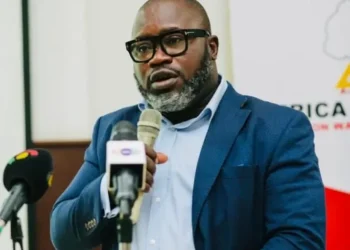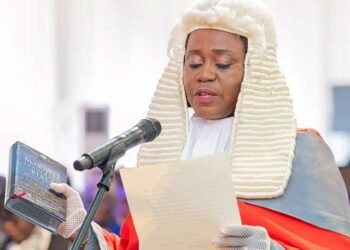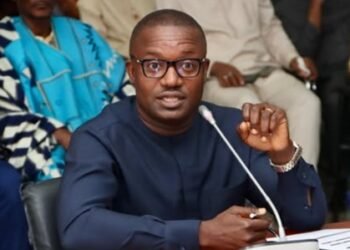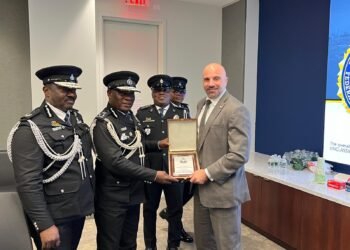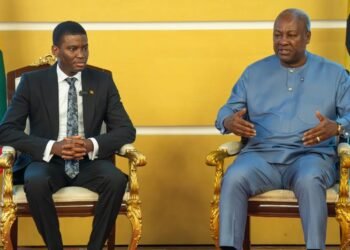Financial Economist at the University of Ghana, Professor Godfred Alufar Bokpin has attributed Ghana’s “lack of progress” in the fight against corruption to some provisions made in the 1992 constitution.
He said for Ghana to be able to tackle corruption head-on, the nation needs constitutional reforms. This, he said, will be a lasting panacea to the widespread corruption in the country.
“Ghana needs a new constitution to help us fight corruption and also fit-for-purpose that represents the aspirations of the people.
“We should start the necessary reforms to help address corruption and ask for greater disclosure and transparency,” Prof. Bopkin added.
He further explained that monetisation and commercialisation of elections in the country makes it very difficult, if not impossible to confront issues of corruption boot-for-boot.
“If we look at the way our democracy is highly monetized and commercialized, it is difficult to allow such a corrupt system to elect leaders and afterwards expect honesty and integrity from them.”
Prof. Bokpin in an interview indicated that, the huge monies spent in contesting an election in the country, if put side by side with salaries received by Members of Parliament, coupled with demands from the constituents, creates a conducive environment for politicians to engage in various corrupt practices to meet up all these demands and at least, break even.
“…With the role of election management and lack of transparency in political party funding, we have designed a process that is corrupt and so we don’t expect to produce an honest leader.
“There are people who see elections as business and they invest in it and after being elected, they maximize returns at the expense of the larger common good of the ordinary people,” Prof. Bokpin noted.
According to him, in order to combat the issue of corruption holistically, he said, it is all-important to have a new constitution or reforms to make corruption a “high-risk business” in the country.
He said the new make up in the next Parliament would go a long way to help address corruption in the country given the slim margin between the Majority and the Minority caucus.
Prof. Bokpin accentuated that given the limited fiscal space due to the COVID-19 pandemic, the country cannot afford to make room for corruption hence should institute reforms to deal with it.
Still on political actors in corruption, he stated that, the ruling New Patriotic Party (NPP) government did not learn lessons from the loss the National Democratic Congress (NDC) suffered in the 2016 elections. He said corruption was a major issue and which eventually costed the NDC a re-election in that election.
“We’re not learning lessons, especially the political actors, and to a large extent the NPP has also been punished if you look at the 2020 election outcomes,” he added.
Corruption
The issue of corruption has been a very sensitive issue in Ghana over the years. Some experts have criticized the reactive rather than proactive response to issues of corruption in the country.
The Executive Director of Ghana Center for Domestic Development (CDD-Ghana), Professor Henry Kwasi Prempeh has also said that “historically, in the Fourth Republic when we have had constitutional rule of government, we have put all of our anticorruption eggs in one basket which is the prosecuting basket.”
This, he said, is inadequate in curbing corruption in the country, because we wait for it to happen then try to salvage the situation.
Meanwhile, President Akufo Addo have time and again reaffirmed his unflinching commitment in fighting corruption in the country, even to the extent of stating that he is willing to “put his Presidency on the line” to fight corruption.
However, the resignation of the Special Prosecutor, Mr. Martin Amidu, and the entire brouhaha around it, raised eyebrows as to government’s commitment in fighting the canker.





